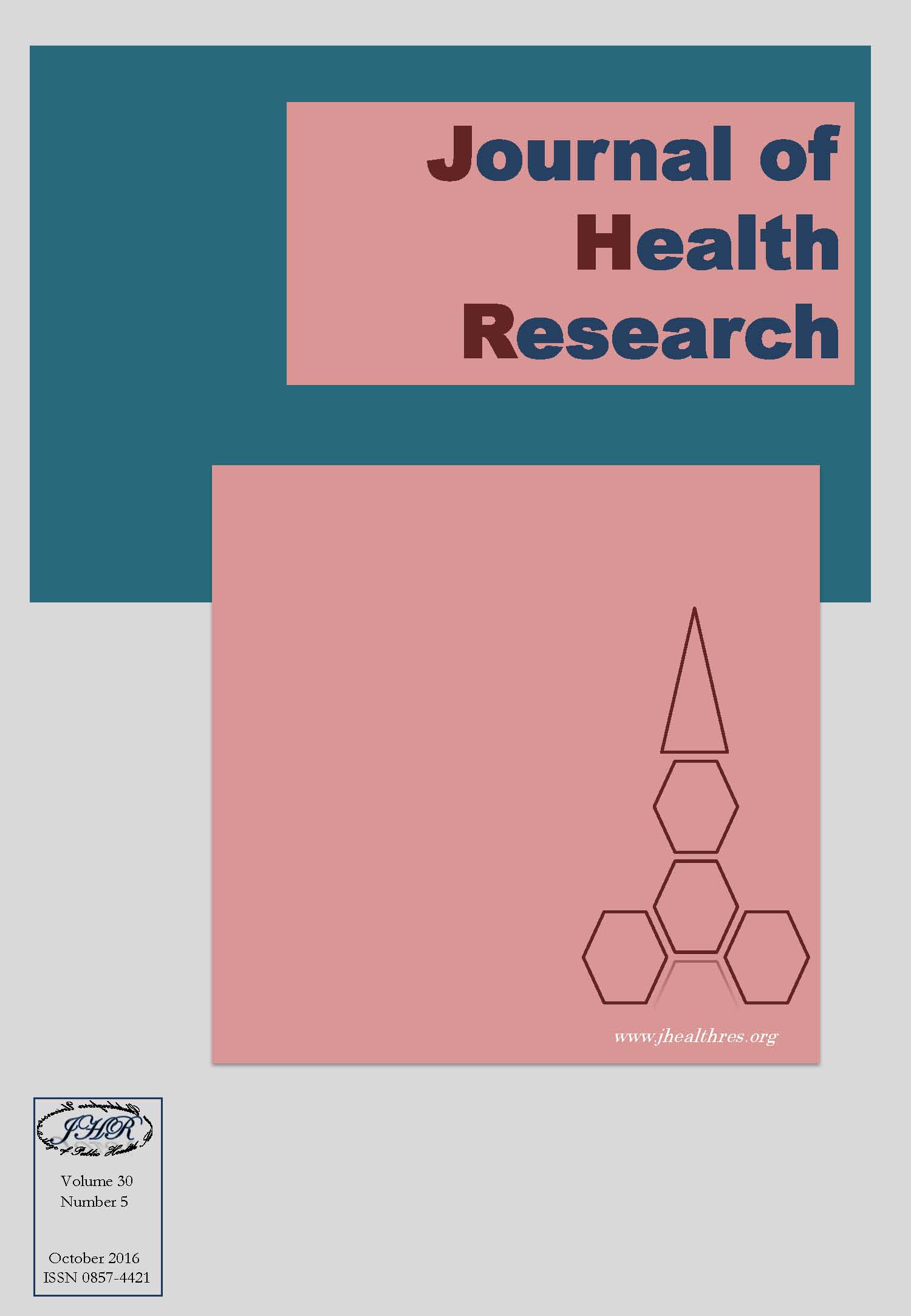Level of Health Literacy in Thai Elders, Bangkok, Thailand
Keywords:
Elderly, Health literacy, ThailandAbstract
Background: Thailand’s population is rapidly aging as a consequence of sustained declines in fertility and improvement in longevity. In spite of growing attention among Thai health practitioners for improving health literacy on health outcome across country, information about the status of health literacy in Thailand remains scarce. The objectives of this study were to assess the level of health literacy and determine the demographic characteristics associated with health literacy among Thai older persons.
Methods: The health literacy survey was conducted in 440 Thai older persons. The respondents were randomly selected. Data collection was based on the Thai elder health literacy questionnaire in paper-assisted personal interviews. The data were analyzed using descriptive statistics and the status of health literacy were categorized into three levels included functional, interactive, and critical health literacy. The Chi-square and Fisher’s exact test were used to determine the associations among the factors related the health literacy.
Results: The Thai elder health literacy questionnaire covered two levels of health literacy: functional, and interactive level. The 2 in 440 (0.5%) respondents showed interactive health literacy and 438 in 440 (99.5 %) expressed functional health literacy. None of the participants had critical health literacy. Results indicated that factors significantly associated with health literacy included education
(P-value=0.001), occupational history (P-value=0.020), visibility (P-value=0.003), and reading ability
(P-value=0.049).
Conclusion: The status of health literacy, especially functional level were considered as having the limited literacy, among Thai older persons represents an important challenge for Thai health policies and health practitioners across Thailand. Knowledge of health literacy is needed to provide the foundation for developing strategies to mitigate effects of low health literacy on health outcome. The social gradient could be taken into account when developing public health strategies to improve health equity.







